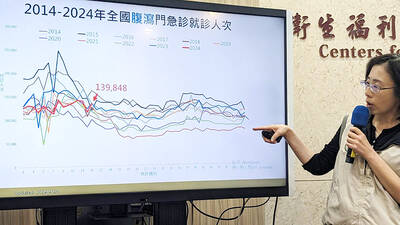Democratic Progressive Party (DPP) lawmakers yesterday criticized Chinese Nationalist Party (KMT) officials who said that US Ambassador to the UN Kelly Craft’s planned visit to Taiwan was “not helpful” and would “rile China.”
“The KMT just wants to placate China, and does not like us doing things that will make positive change. If we do not, Taiwan would sink deeper into the ‘one China’ trap, which is much more dangerous,” DPP Legislator Wang Ting-yu (王定宇) said.
“Certainly we must tread carefully in expanding our space to maneuver in foreign affairs and international programs. This is for the greater good of all our citizens, and all political parties should join together in this effort,” Wang said.
“Some pan-blue politicians are speaking out, overly emphasizing that China will be angered over this and that. They are acting like a mouthpiece for the Chinese Communist Party,” he said.
DPP Legislator Lin Chun-hsien (林俊憲) said that KMT Chairman Johnny Chiang should explain whether the KMT has changed its official policy to “turn away from the US and move closer to China.”
Lin was reacting to KMT caucus whip Alex Fei (費鴻泰), who caused a furor by labeling Craft a “bad guest,” opposing her visit from tomorrow to Friday.
“A US ambassador to the UN coming to Taiwan is delightful news, showing that Taiwan-US relations are upgraded to higher levels, but KMT officials are opposing this, and even calling her a bad guest. This has gone too far,” Lin said.
“I demand that … Chiang not hide away. He must explain to the public the KMT’s official policy of ... becoming anti-US, and moving closer to China,” Lin said.
“Does this conform to the prevailing attitude of our society? If not, then Chiang must restrain his KMT members,” he said.
On a political TV talk show on Friday, Fei said: “What can [Craft] bring to Taiwan? Will she support Taiwan in joining the UN?”
The government and the Ministry of Foreign Affairs arranged the visit at this time, because they are afraid of the incoming administration of US president-elect Joe Biden, he said.
“A visitor who comes calling is a guest, but this visitor is not a good guest, she is a bad guest, and should not visit,” Fei said.
Meanwhile, the DPP released a statement condemning former president Ma Ying-jeou (馬英九), of the KMT, for saying that Craft’s visit would “have no practical effect.”
In an interview on Saturday, Ma said: “In sending the US ambassador to the UN to Taiwan, the US government is only trying to rile China. Currently, it is impossible for Taiwan to join the UN. Craft coming here is only a superficial gesture.”
The DPP said Ma had forgotten that he had in 2009 welcomed John Bolton, who was the US ambassador to the UN from 2005 to 2006.
“Ma treated it as an important event and gave it much fanfare, even producing a news release which praised Bolton for promoting ties with Taiwan, even though he had left the US government office,” the statement said.
“We want to know: When current US government office holders visit in the future, will the KMT oppose it and refuse to meet them?” the statement said.

FLU SEASON: Twenty-six severe cases were reported from Tuesday last week to Monday, including a seven-year-old girl diagnosed with influenza-associated encephalopathy Nearly 140,000 people sought medical assistance for diarrhea last week, the Centers for Disease Control (CDC) said on Tuesday. From April 7 to Saturday last week, 139,848 people sought medical help for diarrhea-related illness, a 15.7 percent increase from last week’s 120,868 reports, CDC Epidemic Intelligence Center Deputy Director Lee Chia-lin (李佳琳) said. The number of people who reported diarrhea-related illness last week was the fourth highest in the same time period over the past decade, Lee said. Over the past four weeks, 203 mass illness cases had been reported, nearly four times higher than the 54 cases documented in the same period

A group of Taiwanese-American and Tibetan-American students at Harvard University on Saturday disrupted Chinese Ambassador to the US Xie Feng’s (謝鋒) speech at the school, accusing him of being responsible for numerous human rights violations. Four students — two Taiwanese Americans and two from Tibet — held up banners inside a conference hall where Xie was delivering a speech at the opening ceremony of the Harvard Kennedy School China Conference 2024. In a video clip provided by the Coalition of Students Resisting the CCP (Chinese Communist Party), Taiwanese-American Cosette Wu (吳亭樺) and Tibetan-American Tsering Yangchen are seen holding banners that together read:

Heat advisories were in effect for nine administrative regions yesterday afternoon as warm southwesterly winds pushed temperatures above 38°C in parts of southern Taiwan, the Central Weather Administration (CWA) said. As of 3:30pm yesterday, Tainan’s Yujing District (玉井) had recorded the day’s highest temperature of 39.7°C, though the measurement will not be included in Taiwan’s official heat records since Yujing is an automatic rather than manually operated weather station, the CWA said. Highs recorded in other areas were 38.7°C in Kaohsiung’s Neimen District (內門), 38.2°C in Chiayi City and 38.1°C in Pingtung’s Sandimen Township (三地門), CWA data showed. The spell of scorching

UNAWARE: Many people sit for long hours every day and eat unhealthy foods, putting them at greater risk of developing one of the ‘three highs,’ an expert said More than 30 percent of adults aged 40 or older who underwent a government-funded health exam were unaware they had at least one of the “three highs” — high blood pressure, high blood lipids or high blood sugar, the Health Promotion Administration (HPA) said yesterday. Among adults aged 40 or older who said they did not have any of the “three highs” before taking the health exam, more than 30 percent were found to have at least one of them, Adult Preventive Health Examination Service data from 2022 showed. People with long-term medical conditions such as hypertension or diabetes usually do not